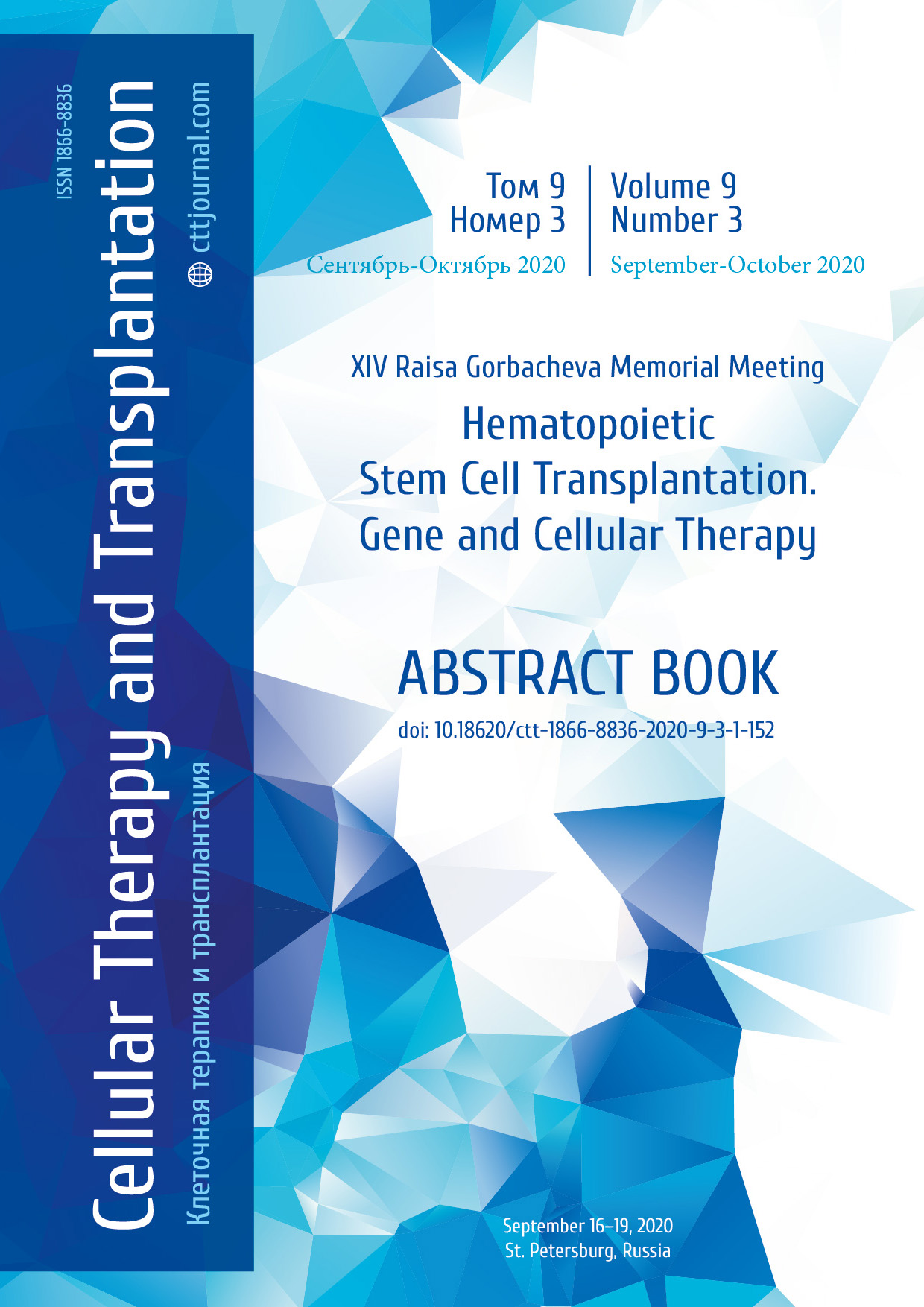AW-03. Results of delayed autologous stem cell transplantation in the patients with advanced stages of systemic AL amyloidosis
Olga V. Kudyasheva, Olga V. Pirogova , Valentina V. Porunova, Anna G. Smirnova, Ivan S. Moiseev, Alexander D. Kulagin
RM Gorbacheva Research Institute of Pediatric Oncology, Hematology and Transplantation, Pavlov University, St. Petersburg, Russia
Contacts: Dr. Olga V. Pirogova, e-mail: dr.pirogova@gmail.com; Dr. Olga V. Kudyasheva, e-mail: olgakudjasheva@mail.ru
Summary
Introduction
Systemic immunoglobulin light chain (AL) amyloidosis is the form of plasma cell disorders, characterized by various organ dysfunction due to amyloid light chains depositions. Results of autologous stem cell transplantation (ASCT) showed improvements in the outcome compared with standard chemotherapy, but only 20% of patients are eligible for upfront ASCT due to amyloid-induced organ damage. Our aim was to assess clinical effects of this approach.
Patients and methods
Among 151 patients with systemic AL amyloidosis treated in First St. Petersburg State I. P. Pavlov Medical University during the past 15 years, 27 patients received a deferred ASCT. Their median age was 55 years (39-66). All the patients had 3 or more organs involved at the time of diagnosis, with advanced heart or renal stages. The number of patients with Standard Mayo cardiac stages I, II, III was the following: 15% (n=4), 26% (n=7), and 59% (n=16) respectively. Median level of NT-proBNP was 2203 ng/L (338-34772). The number of patients with I, II, III renal stages were: 18% (n=5), 51% (n=14), 22% (n=6). Induction chemotherapy included bortezomib-based regimens. The median number of cycles was 4 (2–9), and median time to ASCT was 299 days (158-2013). 74% of the patients received reduced doses of melphalan as conditioning regimen (140-180 mg/m2).
Results
Hematologic response (HR) after induction chemotherapy was achieved in 55% patients: complete response (CR), in 21% (n=8), very good partial response (VGPR), in 14% (n=4), partial response (PR), 12% (n=3). Organ response was achieved in 17 patients, with high frequency of VGPR (70%). After ASCT, five patients improved their response to CR, CR was maintained in eight cases, one patient achieved VGPR, two patients achieved PR. Clinical response was not observed in six patients. Two patients with disease progression on day+ 100. The patients who did not respond to ASCT continued chemotherapy, later achieved HR. There was only one case of transplant-associated mortality. Overall survival (OS) was 81.5%, with progression-free survival of 64%. Five-year OS rate, if compared with non-ASCT patients, was also significantly higher (respectively, 78% vs 57%, p=0.008).
Conclusion
Delayed ASCT is an effective and relatively safe treatment option in patients with advanced stages of systemic AL amyloidosis who achieved organ response after induction chemotherapy.
Keywords
Systemic light chain (AL) amyloidosis, autologous stem cell transplantation, delayed.


